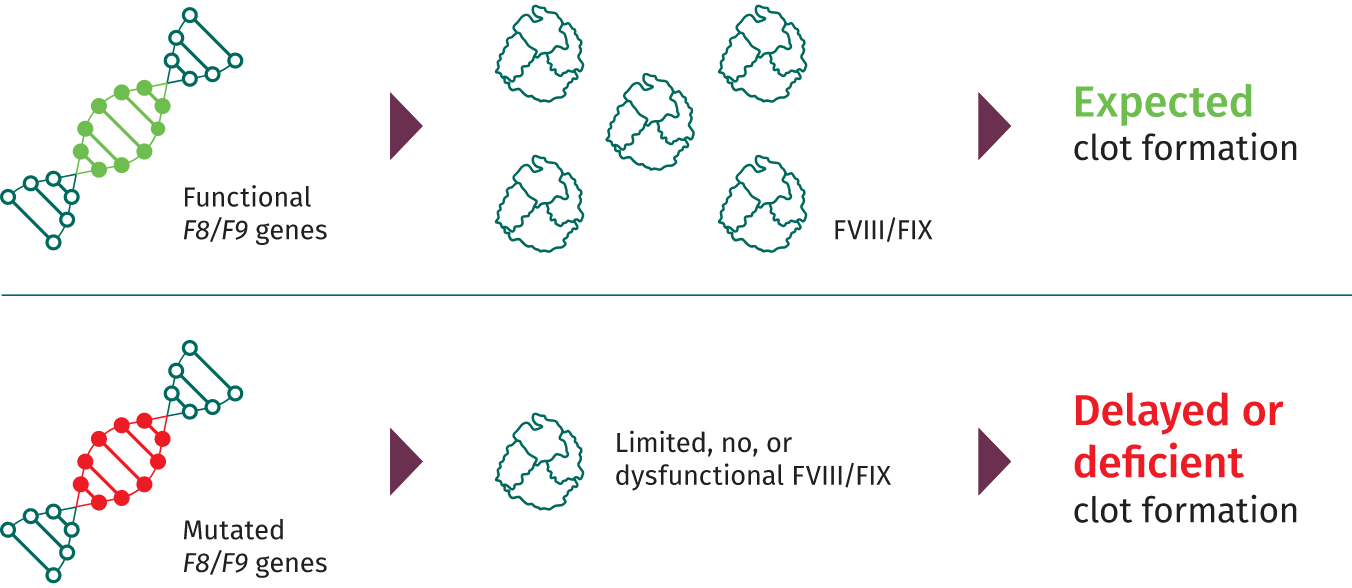What role do genes play in hemophilia?
Hemophilia is a rare genetic bleeding disorder that causes a delay in clot formation. In hemophilia, there is a mutation in the gene that contains the instructions for creating one of several important blood-clotting proteins, called “factors.”
Types of hemophilia
There are 2 main types of hemophilia: A and B.
- Hemophilia A, or factor VIII deficiency, affects approximately 1 in 5,000 males.
- Hemophilia B, or factor IX deficiency, affects approximately 1 in 20,000 males.
Genes and hemophilia
Hemophilia is most often inherited, but in one-third of cases, it is caused by a new or spontaneous mutation. Because of how hemophilia is inherited, it primarily affects men. However, in rare cases, women can be affected, and typically have mild hemophilia, experiencing the same symptoms and complications as men. 16% of mild hemophilia A cases affect women.
Hemophilia severity is classified based on the factor level in a person’s blood:
- Mild (>5% to 40%)
- Moderate (1% to 5%)
- Severe (<1%)
Individuals with hemophilia may bleed spontaneously (without a known cause) from an injury, inside or outside of the body, and longer than those without hemophilia. Common sites of internal bleeding are joints and muscles; bleeding in these locations can lead to joint damage and arthritis. Unexplained bruising and external bleeding also may occur, including nose bleeds and prolonged bleeding from minor cuts and dental work.








